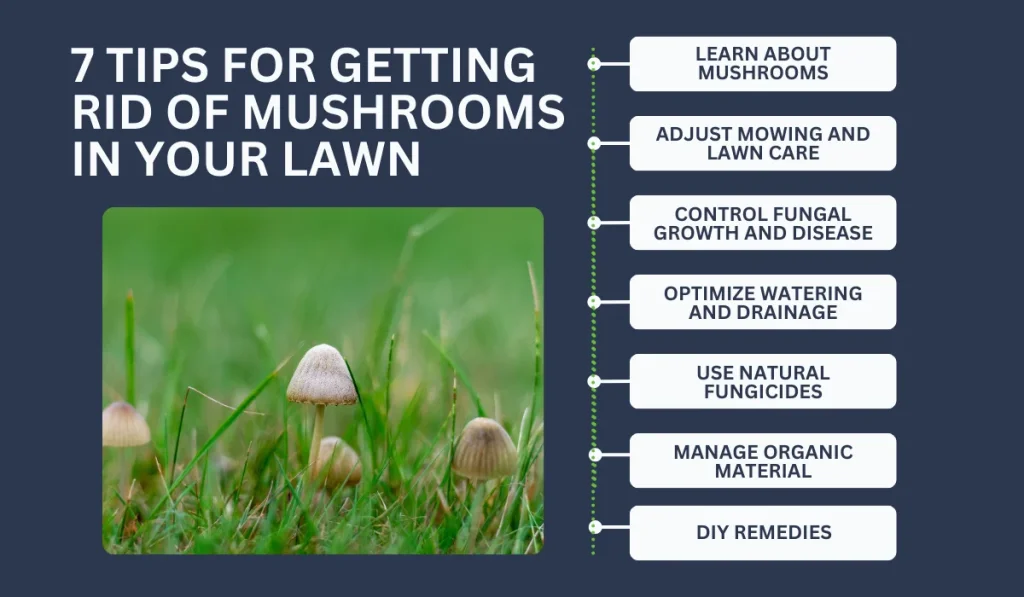Introduction
Mushrooms popping up in your garden can be unsightly and sometimes concerning. While mushrooms are natural decomposers that help break down organic material, their sudden appearance might indicate excess moisture or decaying matter in your soil. For many gardeners, controlling mushroom growth is essential to maintain a clean, healthy garden space and prevent potential risks to pets and children. This article explores practical, research-backed methods to stop mushrooms growing in your garden and maintain optimal soil health.
Why Do Mushrooms Grow in Gardens?
Mushrooms thrive in environments rich in organic material with high moisture levels. Understanding why mushrooms appear is crucial for effective control.
Common Causes of Mushroom Growth
- Excess Moisture: Overwatering or poorly drained soil creates damp conditions ideal for fungi.
- Decaying Organic Matter: Wood chips, compost, mulch, or buried debris provide nutrients for mushroom mycelium.
- Shaded Areas: Mushrooms prefer shaded, cool spots where moisture lingers longer.
By identifying these factors in your garden, you can take targeted action to reduce mushroom growth.
Effective Methods to Stop Mushrooms Growing in Your Garden
1. Improve Drainage and Reduce Moisture
Excess moisture fuels fungal growth. To keep soil drier:
- Adjust Watering Practices: Water plants early in the day to allow soil to dry before night.
- Improve Soil Drainage: Incorporate sand or organic matter to enhance drainage.
- Avoid Overwatering: Use drip irrigation or soaker hoses to limit surface wetness.
2. Remove Organic Debris and Mulch
Fungi feed on decomposing material. Reduce their food source by:
- Raking Up Mushrooms Promptly: Remove visible mushrooms before they release spores.
- Clearing Wood Chips and Fallen Leaves: Replace or thin mulch layers regularly.
- Avoid Burying Yard Waste: Compost separately rather than burying waste in garden beds.
3. Increase Sunlight and Air Circulation
Mushrooms dislike dry, sunny, and breezy conditions. To enhance these factors:
- Prune Overhanging Branches: Let more sunlight reach the soil.
- Space Plants Appropriately: Increase airflow between plants.
- Avoid Dense Planting: This reduces humidity and fungal-friendly microclimates.
4. Use Fungicidal Treatments Carefully
While most garden mushrooms are harmless, if persistent, consider fungicides:
- Select Targeted Fungicides: Use products safe for edible plants.
- Follow Label Instructions: Avoid overuse to protect beneficial soil organisms.
- Consult Local Extension Services: For expert recommendations tailored to your region.
Are Mushrooms Harmful in Gardens?
Most garden mushrooms are not harmful to plants and play a beneficial role breaking down organic matter and improving soil health. However, some species can be toxic to pets or children if ingested, so removal is wise in family gardens. Also, excessive mushroom growth may signal underlying issues like poor drainage or high organic matter needing attention.
Long-Term Strategies for Mushroom-Free Gardens
Maintaining a balanced garden ecosystem helps prevent mushroom outbreaks:
- Regular Soil Testing: Monitor pH and nutrient levels to sustain healthy soil.
- Use Well-Rotted Compost: Avoid fresh organic matter that encourages fungal growth.
- Rotate Mulch Materials: Alternate wood-based mulch with straw or gravel.
- Maintain Garden Cleanliness: Promptly remove plant debris and dead material.
Conclusion
Stopping mushrooms from growing in your garden involves a combination of environmental management and routine garden care. By controlling moisture, removing decaying organic matter, improving sunlight and airflow, and using fungicides responsibly, you can reduce unwanted mushroom growth effectively. Remember, mushrooms also indicate a healthy, biologically active soil, so aim for balance rather than eradication. With these expert tips, your garden will stay both beautiful and safe for your family and pets.
